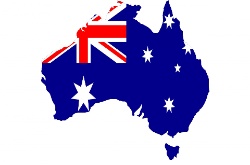World Trade Agreement hailed as a success fails the Pacific
December 9th, 2013
The outcome from this week’s meeting of the World Trade Organization (WTO) does little for its Pacific members and the most vulnerable argues the Pacific Network on Globalisation (PANG). The week of intense negotiations, largely focussed on policies related to food stockpiling, concluded with agreements on food security, Trade Facilitation and a Least Developed Countries Package.
“The Trade Facilitation agreement doesn't in anyway support the Pacific to take advantage of this outcome. Instead this is an agreement that will see rich countries and their corporations benefit from having their goods move through Pacific borders quicker. We should be under no illusion that this is an agreement for the Pacific to increase their exports,” commented PANG campaigner Adam Wolfenden.
The Trade Facilitation agreement is an agreement that aims to streamline the movement of goods across borders through countries making binding commitments to their border procedures. The second component of the agreement aims to address any assistance for Developing and Least Developed Countries to comply with the agreement however this is only on 'best endeavour' language and non-binding on developed countries.
Mr Wolfenden continued “The Pacific members will now face the challenge of complying with the onerous demands that this agreement contains. Whilst there is some flexibility related to implementation based on capacity, this doesn't deal with the fact that Pacific Members will now be diverting precious government revenues into facilitating more imports – the real impact of this agreement.”
The Ministerial also agreed to a package of reforms dealing with issues raised by Least Developed Countries including Duty Free Quota Free market access, Rules of Origin, Cotton, and a trade in services waiver for LDCs.
Mr Wolfenden added that “sadly we have seen the Pacific, and other Developing and Least Developed Countries, concede on Trade Facilitation in order to get a very weak outcome from Bali. The “LDC Package” results in little for the Pacific, offering only 'best endeavour' language, giving little actual benefits for LDCs whilst allowing the rich countries walk away from Bali with binding commitments for their interests”
“The Bali Ministerial has again shown the power politics that goes on in the WTO and the political pressure that gets exerted on countries. The LDC package could have been approved well before this Ministerial but instead we saw it being used as leverage against the most vulnerable members. Pacific countries should hold little hope that a body such as this will ever deliver in their interests,” concluded Mr Wolfenden.
ENDS


 UNICEF Aotearoa NZ: Myanmar Earthquake A Further Blow For Millions Of Children
UNICEF Aotearoa NZ: Myanmar Earthquake A Further Blow For Millions Of Children Greenpeace: 'Desperate And Deceitful'- Deep Sea Mining Frontrunner Turns Its Back On Pacific Nations
Greenpeace: 'Desperate And Deceitful'- Deep Sea Mining Frontrunner Turns Its Back On Pacific Nations 350.org: Australia Announces Election Dates, Pacific Islanders Rally To Vote For Climate
350.org: Australia Announces Election Dates, Pacific Islanders Rally To Vote For Climate UNICEF Aotearoa NZ: Global Aid Funding Cuts - 14 Million Children At Increased Risk Of Severe Malnutrition And Death
UNICEF Aotearoa NZ: Global Aid Funding Cuts - 14 Million Children At Increased Risk Of Severe Malnutrition And Death Oxfam Aotearoa: Humanitarian Operations In Gaza Severely Hampered; Famine Risks Increasing
Oxfam Aotearoa: Humanitarian Operations In Gaza Severely Hampered; Famine Risks Increasing UN News: Migrant Deaths In Asia Hit Record High In 2024, UN Data Reveals
UN News: Migrant Deaths In Asia Hit Record High In 2024, UN Data Reveals